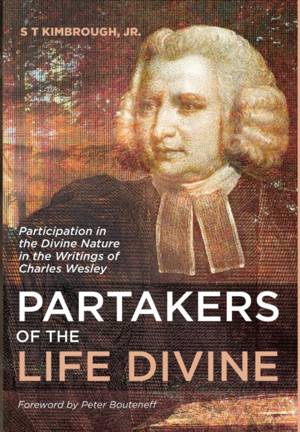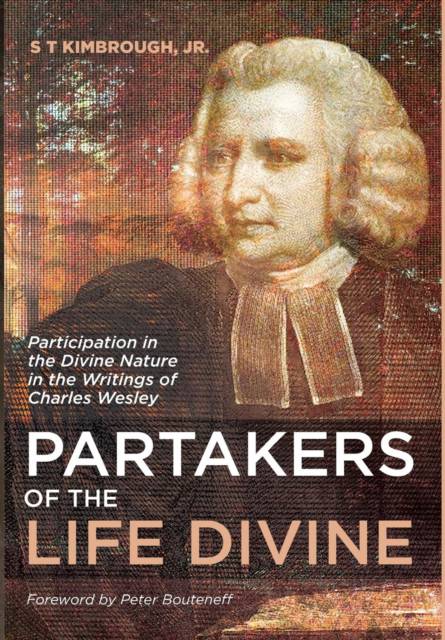
Bedankt voor het vertrouwen het afgelopen jaar! Om jou te bedanken bieden we GRATIS verzending (in België) aan op alles gedurende de hele maand januari.
- Afhalen na 1 uur in een winkel met voorraad
- In januari gratis thuislevering in België
- Ruim aanbod met 7 miljoen producten
Bedankt voor het vertrouwen het afgelopen jaar! Om jou te bedanken bieden we GRATIS verzending (in België) aan op alles gedurende de hele maand januari.
- Afhalen na 1 uur in een winkel met voorraad
- In januari gratis thuislevering in België
- Ruim aanbod met 7 miljoen producten
Zoeken
Partakers of the Life Divine
Participation in the Divine Nature in the Writings of Charles Wesley
S T Kimbrough
Hardcover | Engels
€ 62,45
+ 124 punten
Uitvoering
Omschrijving
This volume is the first attempt to explore Charles Wesley's understanding of "participation in the divine nature," often described by the church fathers as deification and/or theosis, within the full spectrum of his prose and poetical compositions and in relation to many of the church fathers. While the Eastern Church has been the primary harbinger of the doctrine of deification from the patristic era to the present, Charles Wesley's theology illustrates that this emphasis is by no means absent in the West. Though patristic influences on Charles Wesley's thought are primarily through secondary sources such as the writings of Lancelot Andrewes and Richard Hooker, as well as through the influence of his brother John, this volume underscores prominent resonances with the church fathers. The extent of these resonances in Charles's theology as regards "participation in the divine nature" is so widespread in his writings that they form the matrix of his ideas of salvation, perfection, and holiness, all of which are intimately bound with life lived in and through the Eucharist. If taken seriously, Charles Wesley's ideas on "participation in the divine nature" will require a rethinking of the role of Wesleyan theology in spiritual formation and in ecumenical conversation.
Specificaties
Betrokkenen
- Auteur(s):
- Uitgeverij:
Inhoud
- Aantal bladzijden:
- 184
- Taal:
- Engels
Eigenschappen
- Productcode (EAN):
- 9781498286824
- Verschijningsdatum:
- 24/06/2016
- Uitvoering:
- Hardcover
- Formaat:
- Genaaid
- Afmetingen:
- 152 mm x 229 mm
- Gewicht:
- 426 g

Alleen bij Standaard Boekhandel
+ 124 punten op je klantenkaart van Standaard Boekhandel
Beoordelingen
We publiceren alleen reviews die voldoen aan de voorwaarden voor reviews. Bekijk onze voorwaarden voor reviews.









